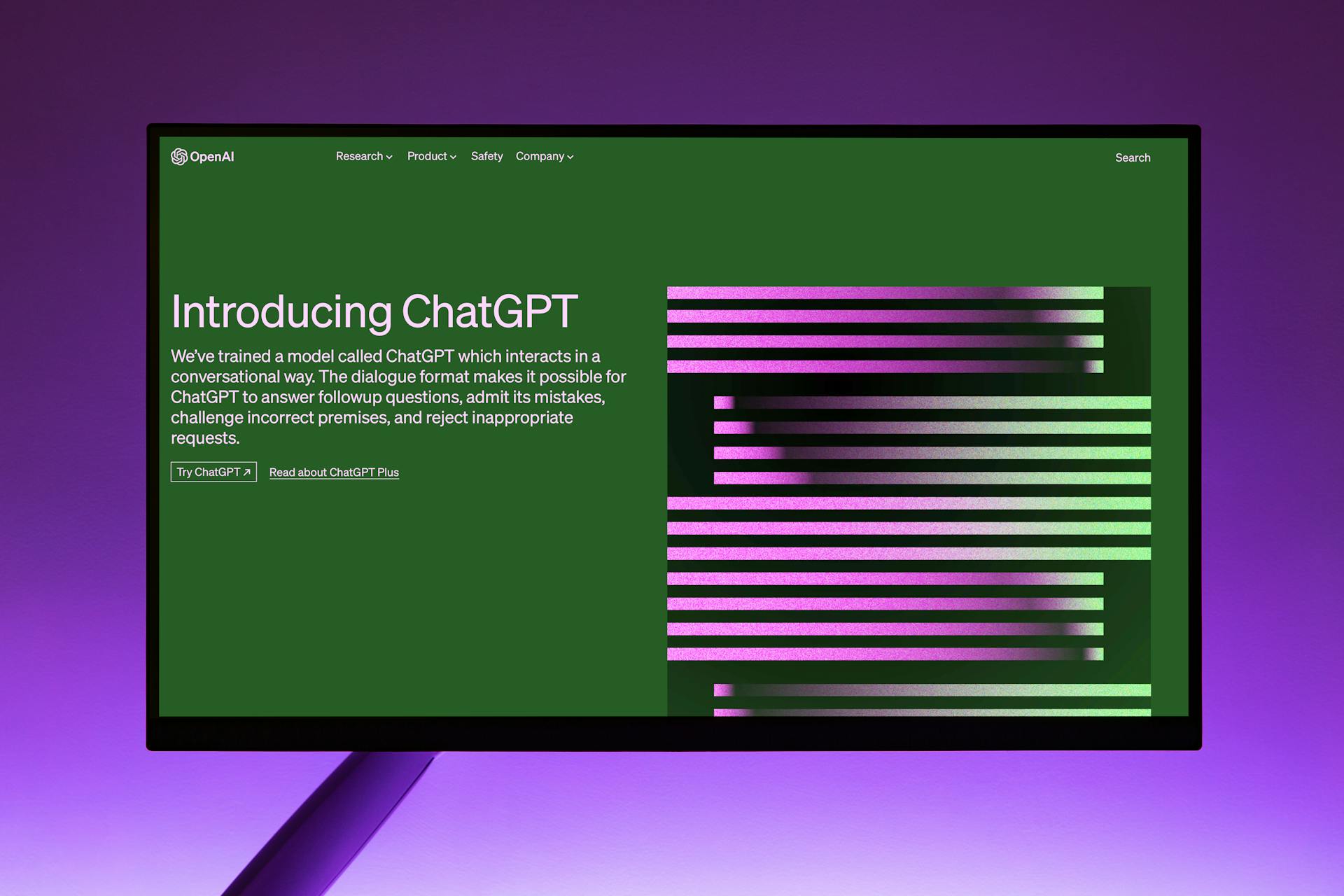SEO-specialist made redundant by ChatGPT?
Up to and including this article, you've probably seen countless articles passing by focusing on ChatGPT and other (future) AI bots. Online, jokes are made and ways are shared to quickly create content and other fascinating applications. That is the hallmark of these types of chatbots: they are widely deployable. Its wide applicability makes it an ideal tool for online marketers, including in social, content, SEO and email marketing. But in its convenience and usefulness there is also a danger.
Expertise
SEO
Door
Justen Vink

Context is everything
‘This article was written in 3 seconds by an AI’ was an article on Dutch news site RTLnieuws in December 2022. This is at the same time interesting and problematic.
The positive thing is that the article was published at the right time for the right audience. This context was exactly right. People still had little knowledge about this type of AI and the article immediately showed its capabilities.
What the problem is with having articles written by AI? There are plenty of people who use this method to grow a business online. Think of an SEO specialist who gets ChatGPT to generate text to create and publish various blogs quickly, because at a glance the content is factually correct. Or a social media specialist who quickly creates and schedules several posts. The pitfall this creates is that content production slowly becomes a goal in itself. Of course it shouldn’t be, but when you get things online like this in a fraction of a time, it is tempting to throttle this.
One of the key points as a marketer is to demonstrate the value of the business to your target audience, with the aim of incentivising people to choose your company to purchase a product/service. If you’re a SEO specialist and recommend putting certain blogs online or, for example, are focused on posting content on social media, you should always use your target audience as a starting point, not a generated text.
Wie leidt wie?
AI lacks the context that you do (for now). You know your target audience. You can use artificial intelligence like ChatGPT in two ways.
In way one, the chatbot leads and you lose connection with your target audience. An example is, ‘Give me 5 topics I can write about for people who are orientating on a new kitchen.’ You could then incorporate this as blog posts and in your socials. The chatbot is leading here, as you passively take in the information and engage with it. What you get back is not wrong, but with this type of questioning you get little original content and thus you lose your connection with your target audience. You shuld be able to describe your target audience much more concretely than this.
In way two, you play into that. You are leading, because you are actively creating content for your target group. For example, you grab the ten most read blogs or the most shared socials by your target audience. Then you use the AI as a tool to discover patterns of this success. You can also generate new ideas based on your list, assess them and decide which ones to develop further. It may take more time, but it will allow you to speak to your target audience in a better and more targeted way.
Goal-oriented publishing
Targeted publishing IS the core. You know which KPIs are important for your business and which KPIs you are responsible for. You also know who your target audience is and a tool like ChatGPT can help you with this.
Once you take the KPIs as a starting point and have collected the data, you can work from there to determine your priorities that you want to work on. Think about growth opportunities and areas where you are still underperforming. The moment you have mapped this out, you can break it down into various tasks and concrete end products, such as creating new landing pages, blog articles and posts for social media. This way, the data and your assessment are leading, not the AI. You can then use the data and insights to drive ChatGPT.
If you want to reach your target audience, it is not about making as many miles as possible, but about addressing them at the right time and in the right way. ChatGPT can help you in this process, but your input as a marketer remains crucial.
At Aspen Digital, specialists are already used to working with (search) data and converting it concretely into actions to be optimally findable in Google. The time-consuming factor is not always in writing an advisory report or a blog article, but the analysis process that precedes it. AI is just a tool for that process and can speed it up, but it is certainly no substitute for the specialist, because as a specialist, you know the context and the goal.
